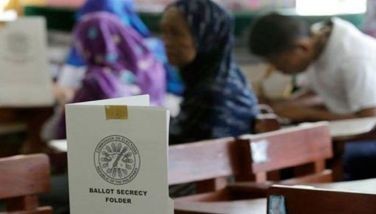SC bars Cuenca from regaining control of PNCC
The Supreme Court (SC) has barred businessman Rodolfo Cuenca from regaining control of the Philippine National Construction Corp. (PNCC), pointing out six government financial institutions are already holding majority shares of the company.
In a 37-page decision penned by Associate Justice Presbitero Velasco Jr., the High Court’s Second Division affirmed the Court of Appeals’ decision declaring six government financial institutions already controlled the majority shares of the former Construction Development Corp. of the Philippines (CDCP).
The six government firms who have controlling stocks in the PNCC are the Development Bank of the Philippines (DBP), the Government Service Insurance System (GSIS), Land Bank of the Philippines (LBP), National Development Co. (NDC), Philippine Export and Foreign Loan Guarantee Corp. (PEFLGC), and the Philippine National Bank (PNB).
The high court dismissed
The SC cited Letter of Instruction 1295 issued by the late strongman Ferdinand Marcos which directed creditor GFIs to convert into shares of stock all direct obligations of CDCP and of its wholly-owned subsidiaries.
On
Sometime in 1977, CDCP was granted a franchise under Presidential Decree No. 1113 to construct, operate, and maintain toll facilities of the North and South Luzon Expressways. In the course of its operations, it incurred substantial credit obligations from both private and government sources.
However, CDCP’s unpaid obligations ballooned so much that by 1983, it became impossible for the firm to settle its maturing and overdue accounts with the six government financial institutions.
After the issuance of the LOI 1295, on
The CDCP then converted some of its obligations to GFIs into equity.
The CDCP issued common shares to the six GFIs and preferred “D” shares to PNB in consideration for the extinguishment of some of the firm’s outstanding loan obligations.
In December 1983, the SEC approved the increase of CDCP’s authorized capital stock, and the corresponding CDCP certificates of stocks issued for the six GFIs.
The total subscription of the issuance of shares of stock pursuant to LOI 1295 amounted to P1.4 billion.
On
With the implementation of LOI 1295, the six GFIs became the majority stockholders of CDCP to the extent of 70 percent of the authorized capital stocks.
The change in the corporation’s ownership was made public through various announcements. CDCP was later renamed PNCC to reflect the Philippine government’s stockholding, and became a government-acquired asset corporation.
The six GFIs were given seats in the board of directors of PNCC and participated in the management of the company.
On
On
In ruling against
“First, it is undisputed that shares of stock were issued to the GFIs converting part of their outstanding loan credit to equity with PNCC,” the court said.
“The certificates of stock issued attest to this fact…Thus, based on these reasons, there can be no doubt as to the implementation of LOI 1295. Corollary, the shares of stock subject of the instant case issued to the GFIs were for value and this cannot be considered as void or watered stocks,” the court said.
- Latest
- Trending




























